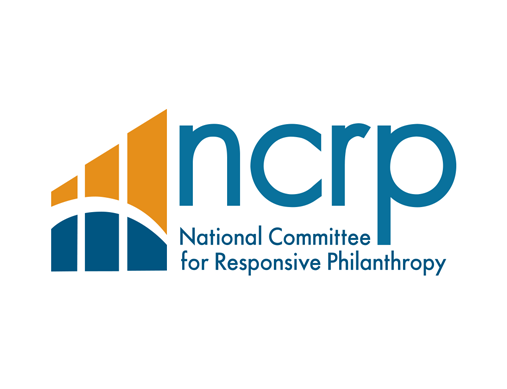Member Spotlight: National Committee for Responsive Philanthropy

National Committee for Responsive Philanthropy has pushed foundations to do more for those who are marginalized, underserved and disenfranchised.
What is National Committee for Responsive Philanthropy‘s issue focus?
National Committee for Responsive Philanthropy (NCRP) promotes philanthropy that serves the public good, is responsive to people and communities with the least wealth and opportunity, and is held accountable to the highest standards of integrity and openness. This means that we educate funders and donors, analyze their practices and engage members and donors to drive more dollars to work that creates a more equitable society.
What is something National Committee for Responsive Philanthropy is currently prioritizing? Can you tell our readers a little about the goals of the campaign/project?
We recently released Power Moves, the only foundation self-assessment guide that helps grantmakers determine how well they are effectively and responsibly building, sharing and wielding power to advance equity and justice. Power Moves is grounded in honest feedback from foundations’ grantees, peers and other stakeholders, and builds on work by NCRP and other research and advocacy organizations. This tool is important because foundation efforts seek equitable and just outcomes but don’t take into account how power and privilege may deter greater, lasting impact. Our current moment makes it more important than ever to make sure that our work makes significant progress for equity and justice efforts across the country.
Tips and lessons:
Over the last few years, NCRP has been more intentional about building strong partnerships early in the process. In both the Power Moves project and the As the South Grows initiative, we have partnered with allies who not only have knowledge, but also relationships, strategy, and feedback that has made the work stronger. These partnerships have allowed us to be even more aware of our power as a national, white-led organization.
We have been able to practice flexibility – prioritizing respectful, inclusive relationships with our partners over timelines or other parameters. We’ve learned new strategies from one another and co-created pathways we wouldn’t have been able to see as individual organizations. Overall, these partnerships have been a model of the practices we advocate for in our work, adding a new layer of credibility to our messages and our advocacy. Partnership can be challenging, but doing it well is an important aspect of tackling the biggest challenges we face in society.
Many of our member organizations work with both our Bolder Advocacy initiative on c3/c4 advocacy rules and guidance, and our Justice programs on the importance of the courts and judicial nominations. How has either or both most helped you? How have you worked with either or both?
Because our main audience is the philanthropic sector, we refer to Bolder Advocacy’s Philanthropy Advocacy Playbook all the time! There are so many myths about what foundations can and cannot do, and many foundations can be risk averse. The Playbook is an accessible resource that helps us quickly move past the myths of what’s allowed so we can engage funders around the detailed strategies and practices that will advance justice.
Who inspires you?
NCRP is inspired by all the people who are leading movements to advance social justice in our society. Countless individuals lead their communities in creative strategies to improve our systems and structures. We know that many of these leaders have very few resources, face backlash, and are suffering the effects of injustice themselves. Despite this, they have not given up on our democracy and take great risks to fight for a better country. This inspires all of us at NCRP to do what we do each day.
Learn more about National Committee for Responsive Philanthropy here.
